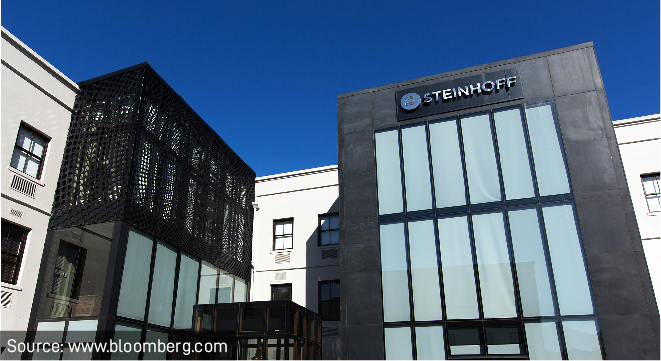“How much can I claim back from my Steinhoff losses in the current process?” This is a question we have heard frequently over the past few weeks, but which we have not seen anybody answer. The main reason for this is that nobody really knows.
We have read much of the legal jargon on the Steinhoff website and most of the articles written about it, but nobody has been brave enough to put a number out there, including Steinhoff itself – for good reason.
Such an article can quickly degenerate into legalese and attempts to explain spiderwebs of complexity, so let us put our understanding of the issue in as plain and clear language as we can (this is full of estimates and ballpark figures, and we highlight that all of our postulations have caveats).
There is about EUR750 million (about R13.5 billion) to be shared across the secondary/retail investors who claim – including the recoveries from Deloitte and the directors’ and officers’ insurers. This is a fixed amount. To put it in context, Steinhoff had a market capitalisation of around R300bn at its peak.
Of the 4.3 billion shares in issue, around 68% of these shares fall into this retail pot. Thus, about 2.9 billion shares can be claimed, and this will be shared among those that claim.
So, let us estimate 2.5 billion shares submit claims. Then it will mean that the simplest ballpark per share is R5.50 (R13.5bn/2.5bn). However, it is not nearly that simple, and your claim could be materially on either side of that number.
Shareholders who held Steinhoff shares at 6 December 2017 can claim, and they must submit all of their purchases and sales for many years before that.
There is a complex equation and set of rules, which will then work out your claim amount. This has been outsourced by Steinhoff to the Stichting Steinhoff Recovery Foundation (SRF), an independent body set up to oversee the claims process, and Steinhoff plays no further part in this calculation.
There is no way for investors to work out their claim amount. It is not directly tied to your actual loss, and part of the equation is how much the share price at the time of your purchase or sale was inflated – this is estimated by an independent body (the SRF).
The equation also considers all your purchases and sales. This would seem to favour those shareholders who bought Steinhoff shares later rather than earlier. Some estimates of recovery of claims are in the region of 10% – but somebody else will be working out your claim amount and the man in the street will not be able to do so.
So, for those shareholders who bought many years before the shenanigans began, the result might be disappointing.
However, for shareholders who bought in the year prior to that fateful announcement, the claim amount might be larger than expected.
A thumb suck of what shareholders might get is in the region of R2 to R8 per share (with an average of R5.50 per share), depending on individual circumstances and several other complex factors.
These numbers have not been confirmed by Steinhoff but are our best estimate based on our assessment of what we know.
We suspect that the algorithm could spew out settlement amounts that people might want to challenge.
These numbers are more than what we had expected at the time of the company’s woes, and Steinhoff management has done incredibly well to retain and distribute value to those parties that suffered losses.
It goes without saying that we have not attempted in any way to cover all the relevant issues in this article. Our intention is simply to provide some ballpark numbers to guide expectations, but, given the complexity, only the outcome will provide the ultimate clarity.
We are assisting our clients with claim submissions, and the bottom line is that it appears to be worth the effort of claiming. The result is likely to be material enough to warrant the effort.
Peter Armitage is the chief executive of Anchor Capital.
Disclaimer: The views expressed in this article are those of the writer and are not necessarily shared by Moonstone Information Refinery or its sister companies.



